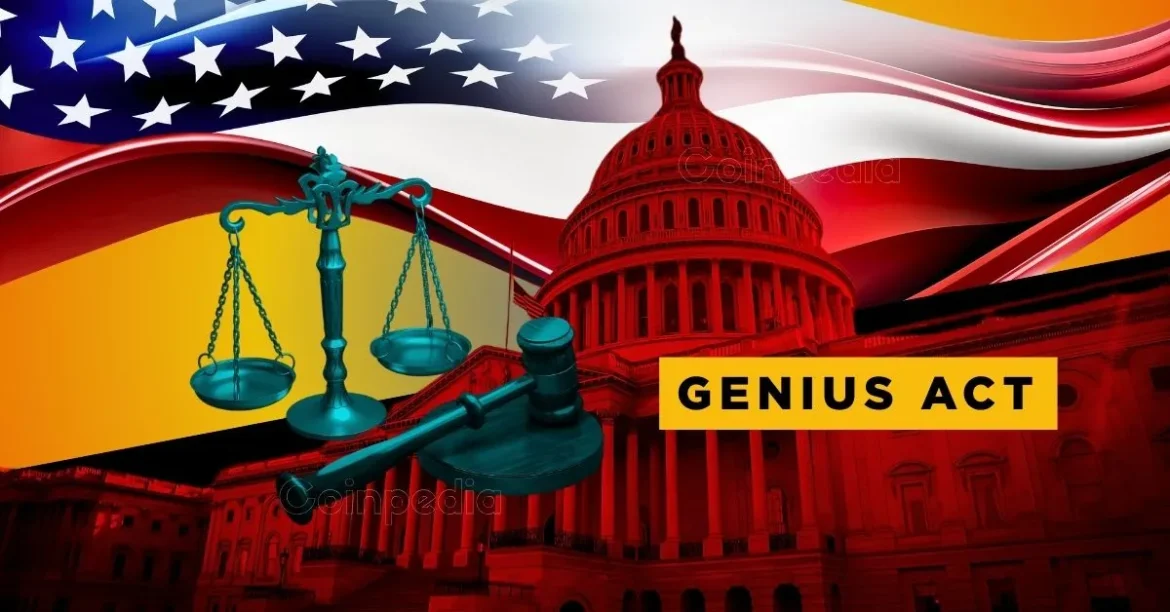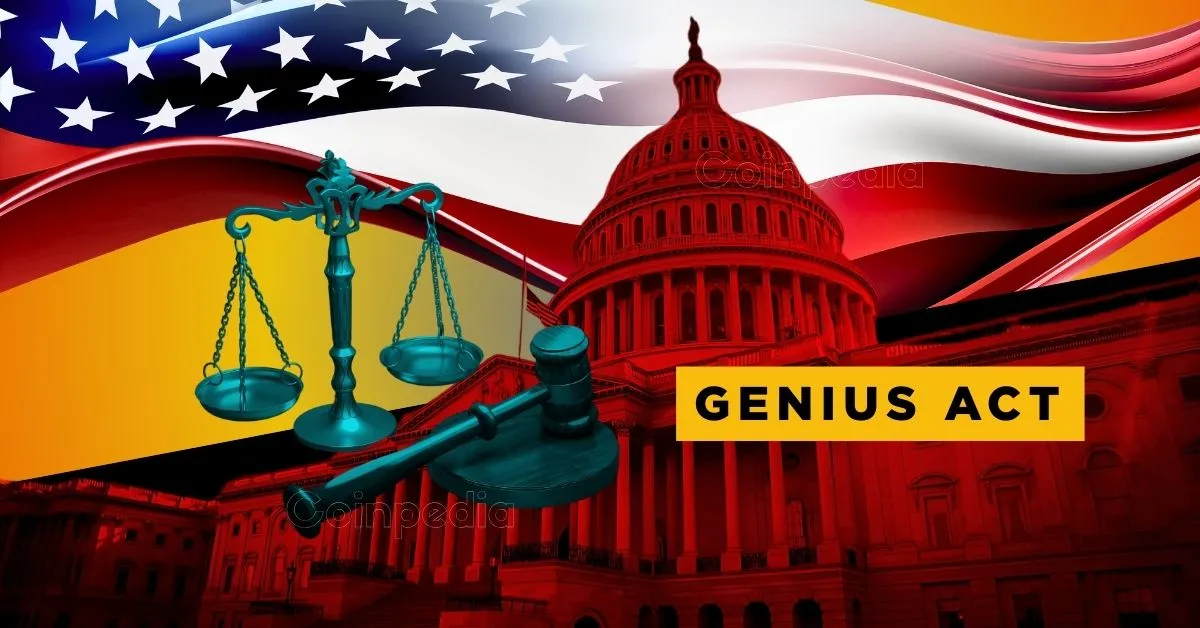Advancing the GENIUS Act: A Pivotal Moment in U.S. Stablecoin Regulation
The U.S. Senate recently marked a significant step toward regulating the rapidly expanding stablecoin market with the advancement of the GENIUS Act (Guiding and Establishing National Innovation for U.S. Stablecoins Act). Crossing a crucial procedural hurdle amid fluctuating support and partisan dynamics, the bill’s passage for debate signals mounting momentum for the creation of an official regulatory framework for stablecoins — digital tokens pegged to fiat currencies like the U.S. dollar and integral to the burgeoning cryptocurrency ecosystem.
Context and Legislative Background
Stablecoins have surged in prominence, with the market approaching nearly $250 billion in value. Despite their growing influence in finance, the absence of a clear regulatory environment in the U.S. has raised concerns about investor protection, market stability, and the potential for misuse. The GENIUS Act emerged as a bipartisan attempt to provide clarity and oversight, aiming to establish standards for issuers, impose safeguards, and foster innovation.
Introduced and championed by Senator Bill Hagerty (R-TN), the act would create the first structured federal regulatory framework specifically tailored for stablecoins. The legislation’s consideration comes amid a broader effort to bring digital assets into the traditional financial regulatory fold, reflecting both an acknowledgment of their growing role and the desire to mitigate risks.
The Latest Vote: Overcoming Previous Roadblocks
The Senate’s recent procedural vote to invoke cloture on the GENIUS Act passed decisively with a 66-32 vote, surpassing the 60-vote threshold required to end debate and advance the bill toward a full floor vote. This outcome contrasts with an earlier procedural failure where the bill failed to secure 60 votes, notably hindered by unanimous Democratic opposition and a small Republican dissent.
This time, the dynamics shifted. Notably, more than 15 Democratic senators—including names such as Catherine Cortez Masto, Adam Schiff, Mark Warner, and Ruben Gallego—crossed party lines to support moving the bill forward. On the Republican side, the bill retains strong backing, yet two GOP senators, Rand Paul and Jerry Moran, opposed the motion, reflecting ongoing ideological divisions even within the party.
The procedural vote’s success pushes the GENIUS Act into formal debate, opening the path for potential amendments, negotiations, and further refinements before a final vote.
Issues Behind the Bipartisan Dance: Concerns and Compromises
Despite the progress, the bill’s journey has been complex and fraught with contention.
Democratic Hesitation and Political Sensitivities: Earlier Democratic opposition stemmed not only from concerns about the bill’s regulatory approach but also political apprehensions about ties to the Trump administration and related business interests. Some Democrats feared the bill could enable preferential treatment or inadequate scrutiny of large stablecoin issuers with personal or political connections.
Regulatory Stringency and Consumer Protection: Senators across the spectrum weigh regulatory rigor differently. Proponents argue that the GENIUS Act balances innovation with necessary oversight to prevent fraud, ensure liquidity, and avoid systemic risks. Opponents urge stronger measures to guard against concentration of market power and potential entanglements with traditional banking systems.
Industry Influence and Lobbying: The stablecoin sector’s rapid rise has galvanized stakeholders’ efforts to influence legislation. Supporters emphasize that clear regulations could boost market stability and U.S. leadership in cryptocurrency innovation, preventing companies and users from moving overseas to less regulated jurisdictions.
Negotiations and Revisions: Leading up to the vote, bipartisan talks sought to address objections through revisions, but some disagreements remained unresolved. The defeat of a prior procedural vote followed a Republican leader’s last-minute reversal and a concerted Democratic blockade, underscoring the fragile coalition supporting the bill.
Political and Market Implications
The Senate’s decision to advance the GENIUS Act marks a key inflection point. It signals growing congressional recognition of stablecoins’ significance and the urgency of legislating their oversight. Should the bill become law, it would establish a precedent-setting regulatory regime, likely shaping how digital assets integrate with the banking and payments industries.
Moreover, the bipartisan nature of the recent vote suggests a wider willingness to confront crypto regulation beyond partisan divides, albeit tenuous. The willingness of moderate Democrats to support debate hints at an acknowledgment of stablecoins’ importance and a strategic choice to craft workable rules rather than leave the space unregulated.
For the cryptocurrency market, this move contributes to reducing regulatory uncertainty, which could inspire increased investment and innovation domestically. However, the final form of the legislation—its safeguards, compliance demands, and enforcement mechanisms—will be crucial in determining the balance between innovation and risk management.
Looking Ahead: The Debate and Final Vote
With cloture invoked, the Senate floor will now host detailed discussions on the GENIUS Act’s provisions. Amendments may emerge addressing outstanding concerns such as:
– Consumer protection enhancements
– Transparency and auditing requirements for stablecoin issuers
– Limits on political influence or conflicts of interest
– Mechanisms for inter-agency coordination among financial regulators
How these debates unfold will influence the bill’s ultimate viability and shape the future regulatory environment for a rapidly growing sector.
Conclusion: Toward a Regulatory Landmark in Crypto Finance
The U.S. Senate’s advancement of the GENIUS Act through a 66-32 procedural vote embodies the legislative system grappling with the complexities of regulating novel, fast-evolving financial technologies. Striking a difficult balance between fostering innovation and ensuring market integrity, this bill’s progression highlights both the political and technical challenges inherent in crypto regulation.
As the bill proceeds to further debate, the eyes of the crypto industry, financial institutions, policymakers, and investors will be closely watching. The GENIUS Act could set a transformative benchmark, defining America’s role in the digital asset revolution and potentially shaping global regulatory standards for stablecoins in years to come.





